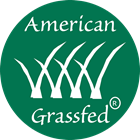The REGENERATE Conference is an annual educational gathering of ranchers, farmers, government and Tribal officials, and land stewards from across the Western US and country. The conference is hosted by the American Grassfed Association, Holistic Management International, and Quivira Coalition. In 2020 the conference had to be held virtually, a new enterprise for all three organizations. However, the experience laid the groundwork for a truly unique conference experience in 2021.
While past conferences have consisted of a single, three-day event in Albuquerque, the 2021 REGENERATE: Weaving Water, Land, and People will embody more a season of learning than a distinct event. The conference organizers and their manifold partners will host a series of in-person field days at properties across the country in September and October. Then, during the week of October 25, the REGENERATE will host a week of virtual educational workshops for land stewards. Finally, from November 3-4 at Old Town Farm in Albuquerque, NM, the conference organizers will host two days of keynote, plenary, and roundtable sessions, offering opportunities for both in-person and virtual engagement.
2021 REGENERATE will take a holistic educational approach that is grounded in several fundamental ideas: water is life; land includes terrestrial, aquatic, and atmospheric systems and all the relationships within them; and people refers to those who regenerate our lands and food systems at varying scales and times, past, present, and future. Attendees can expect to hear from speakers like Kara Boyd, President of the Association of American Indian Farmers; Alejandro Carillo from the Las Damas Cattle Ranch; Rachel Armstrong, Founder and Executive Director of Farm Commons; Sarah Parmar, Director of Conservation for Colorado Open Lands; and Ed Roberson, Conservation Director for Palmer Land Conservancy. In addition to topics like soil health and water rights, the conference organizers intend this year to center marginalized peoples, weaving in the often isolated and ignored perspectives of those who have long practiced regenerative agriculture and land stewardship.
Registration for the event is now open and can be found at www.quiviracoalition.org/regenerate/. In-person space is limited, and the conference format and/or requirements for attendance are subject to change pursuant to CDC and state public health guidelines.
